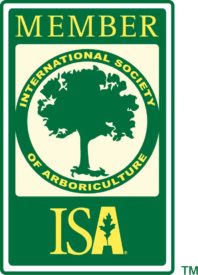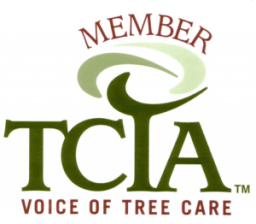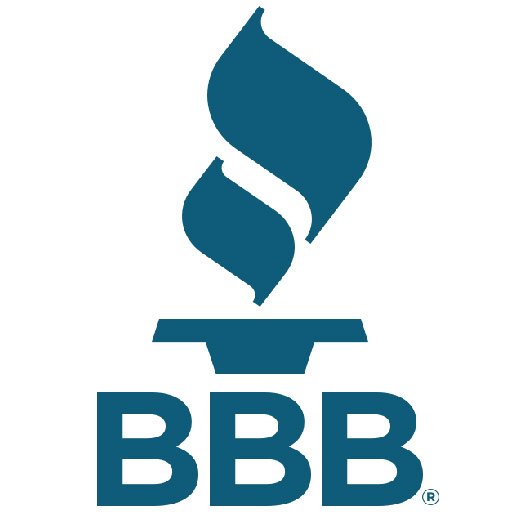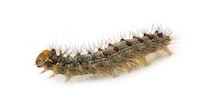READ MORE: Aphids・Bagworms・Beetles・Gypsy Moth・Oak Gall・Termites・Twig Girdlers・Webworms
Gypsy Moth Treatment in Fort Worth, TX
ISA Certified Arborist That Treats Gypsy Moth
There are four stages of gypsy moth development. They generally reproduce only one generation per season and go through the egg, caterpillar, cocoon, and moth stages. They are general feeders and do not discern in their target hosts, infesting more than 450 varieties of trees and plants that are popular throughout Fort Worth and the surrounding cities.
They usually feed together in groups and eat the tree foliage along the edges first and progress towards the center of the leaves. As they progress, the infested tree is stripped and exhibits total foliage loss and signs of a dying tree. They do not destroy a tree in their own right but will cause the tree to become weak and susceptible to other insect infestations and tree diseases. Contact an experienced tree company promptly when you observe these unsightly symptoms.
Gypsy Moth Treatment in Fort Worth, TX, call (817) 880-6130 for a Gypsy Moth diagnosis!
Diagnosing Gypsy Moth
Weak trees are most susceptible to a gypsy moth infestation, but these insects will strip the foliage off entire acres of trees when their population is high. They overwinter as eggs and first appear in April. Winds disperse the larvae throughout the outdoor grounds and easily spread these insect pests. Adult moths emerge from cocoons during the July Texas heat.
When you observe the moths, cocoons, or caterpillars, you must contact an arborist that treats sick trees. The certified arborist examines the tree and habitat grounds and provides a diagnosis report. A tree doctor will administer the treatment needed to eliminate the insect infestation, and a one-year warranty is provided with any treatment.
Treatment Of Gypsy Moth
Any infested trees and all ground debris should be promptly removed and destroyed by a tree removal company. A tree care specialist should examine your outdoor grounds, lawn furniture, firewood, and even your vehicles and scrape any detected eggs from the outdoor environment. Always wear gloves and protective clothing because gypsy moths have caused allergic skin rashes and respiratory conditions. Pesticides have proven successful when administered by a tree care specialist. The best way to manage gypsy moth infestation is to maintain the health of your trees and residential outdoor environment by having an experienced tree company customize a continual tree health care maintenance plan.
Trees beautify your residence, provide relaxing shaded areas and significantly increase your property value. Prevent insect infestations and tree diseases by entrusting the care of your trees, plants, and residential grounds to the best arborist in Fort Worth, Texas. Our staff of highly-experienced tree and plant health care experts are devoted to providing you with the safest, best-quality tree and plant health care at the best price.
Contact Us For Gypsy Moth Treatment in Dallas-Fort Worth, TX
Contact the best arborist in Fort Worth, Texas, at (817) 880-6130 and schedule your complimentary consultation. Our team of highly experienced and knowledgeable certified arborists, tree doctors, and arbor care professionals are devoted to caring for the trees within our community and providing you with the best service at the best price.
If you have Gypsy Moth on your property, call (817) 880-6130 for a free consultation from a certified arborist in Fort Worth, TX.
Tree Insects
Listed below are common tree insects (pests) found in Texas trees.
Aphids
A white soft body insect that creates a sticky "honey dew" structure on limbs or leaves, blocking nutrients.
Bagworms
Bagworms lay eggs that create small cone-shaped structures less than three inches in length.
Beetles
An invasive wood borer that is subject in all wood tissue that causes severe decline in trees health.
Gypsy Moth
A larva that boars into leaf structure that cause lesser of a foliation and decline in overall leaf structure.
Oak Gall
A growth deformity known as a "gall" commonly occur on oak trees subject to branches and other structures.
Termites
Termites, wood-destroying insect, eats away at all wood tissue, damaging the structures of the trees.
Twig Girdlers
Being a member of the long-horned beetle family, these girdlers are known to eat leaf and other tree areas.
Webworms
These caterpillars spin white webbing bag nests in tree branches and eat your tree foliage (leaves).
Certifications




Our Reviews

A+ BBB Rating based on 31 BBB Reviews
4.6/5.0 based on 36 Facebook Reviews

Arborist USA is Rated 4.9/5.0 based on 113 Google Reviews
4.5/5.0 based on 14 Yelp Reviews

